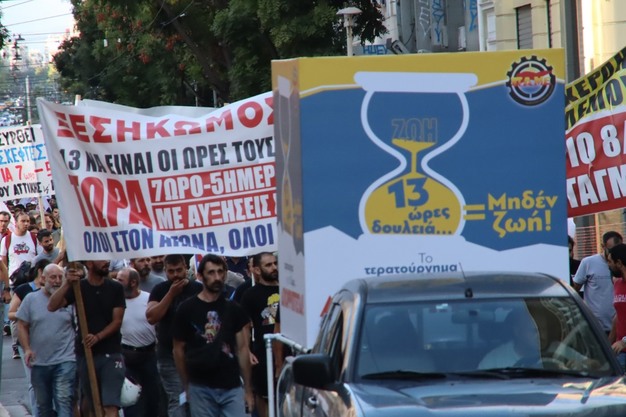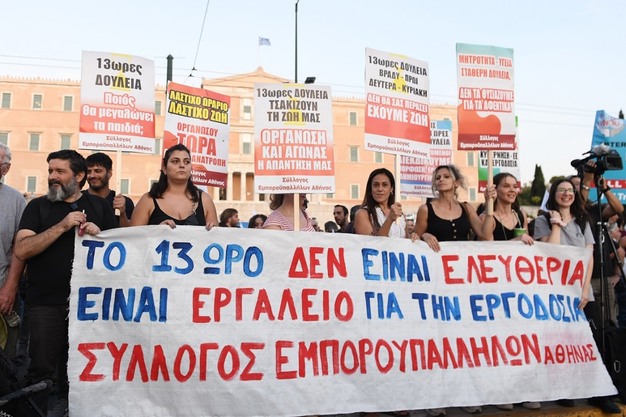A general strike has been declared for October 1st in Greece, against a government bill that establishes 13-hour work with the same employer. The bill also introduces a series of other measures concerning the regulation of working time, such as its weekly arrangement, the possibility of being called to work one hour before the start of a shift and leaving one hour after its end, the imposition of overtime on employees working on a rotating basis, and the breaking up of the fifteen-day summer leave established in Greece into smaller parts throughout the year.
 © Pamehellas
© Pamehellas
Snapshots from a recent rally against the bill
On the other hand, the unions organizing the strike under the central slogan "We are humans, not machines" have long warned the government not to bring the bill to Parliament, stressing that this constitutes a cause for war and putting forward instead the demand for stable seven-hour, five-day work. At the same time, they continue to insist on their permanent and common demand for the signing of mandatory collective agreements in every sector, with wage increases that cover inflation. This is a demand for which, over the past twelve months, they have already carried out three nationwide strikes and dozens of sectoral strikes.
The October 1st strike is expected to affect the production and distribution of fruits and vegetables, as participation has already been declared both by the Panhellenic Federation of Food, Milk, and Beverage Workers, as well as by many regional unions of the sector, in which the significant overstepping of the eight-hour limit is already a widespread reality. In fact, as these unions denounce with regard to the bill: "In the food industry, there are also other favorable loopholes for employers, such as preparation time and breaks that are not considered working hours. In this way, time spent at work may extend to more than 14 hours."
 © Pamehellas
© Pamehellas
Snapshots from a recent rally against the bill
Finally, the supply chain of fruits and vegetables will also be affected by the participation in the strike of the Panhellenic Seamen's Federation, which will keep ships tied at the ports, as well as by the union of workers managing container handling at the port of Piraeus, the largest port in the country.
